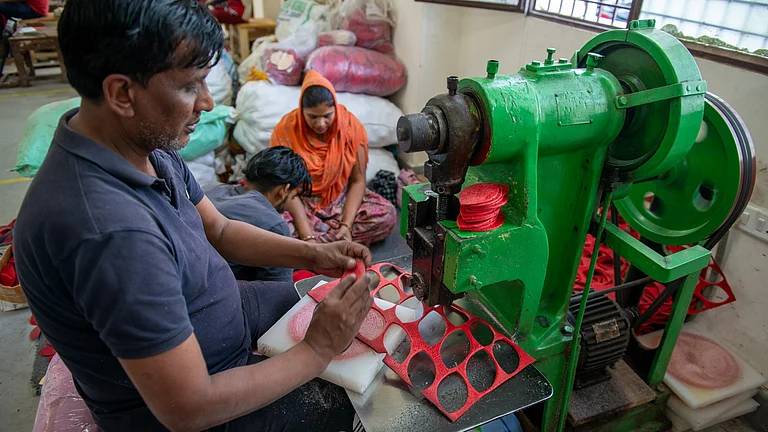Micro, small and medium enterprises (MSMEs) in India are facing structural challenges like limited access to formal credit, which is impairing their productivity, but their digital readiness remains a bright spot, a Deloitte India report said on Wednesday.
Structural Challenges Impacting MSME Productivity, Digital Readiness a Bright Spot: Deloitte Report
MSMEs in India contribute nearly 30 % to GDP, and account for 45 % of exports and provide livelihoods to over 240 million people
MSMEs in India contribute nearly 30 % to GDP, and account for 45 % of exports and provide livelihoods to over 240 million people.
The study shows that despite exhibiting a significantly higher degree of digital readiness than OECD peers, Indian MSMEs operate at just 18 % of large-enterprise productivity compared with 45-70 % in OECD economies.
This gap limits their competitiveness compared to global counterparts.
Deloitte India Economist Rumki Majumdar said India's MSME space is marred by several structural and persistent challenges, including limited access to formal credit, outdated technology, regulatory complexity and infrastructure bottlenecks.
The credit gap is estimated at ₹ 30 lakh crore or about 24 % of total demand. It is significantly higher for services (27 %) and women-owned MSMEs (35 %), with severe implications on their scaling opportunities and growth prospects," Majumdar said.
The intensity of challenges becomes more pronounced in non-metro regions, where these enterprises are concentrated, she added.
According to 'Deloitte's MSME challenge index', MSMEs in sectors such as readymade garments face severe credit constraints because of the high perceived risks associated with the sector, characterised by low margins and intense global competition, making their products highly substitutable.
Defence equipment, fabricated metal products and tiles and sanitaryware, in contrast, appear relatively resilient to challenges, possibly due to niche demand or government procurement support.
However, they face unique challenges, particularly delayed payments and the shortage of skilled labour.
Given that MSMEs in textiles and garments, auto components and general-purpose machinery have the highest exposure to exports, they remain particularly vulnerable to the recent uncertainties emerging from volatility in global trade and tariffs, the Deloitte report said.
Deloitte's state-wise MSME ecosystem index reveals that states such as Maharashtra, Uttar Pradesh, Tamil Nadu and Karnataka have emerged as resilient hubs for MSMEs.
States adopting a structured approach, driven by proactive policy frameworks, infrastructure investments and digital adoption, have offered fertile ground for MSMEs to prosper, resulting in higher formalisation, improved market access and linkages, better access to credit and higher employment opportunities.
This offers the private sector, specifically large corporations and multinational corporations, the opportunity to tap into the next wave of MSME transformation and to collaborate with state governments, industry bodies and technology providers to build shared infrastructure.
"Such collaborations will be instrumental in enhancing MSME scalability andproductivity in tier-2 and tier-3 cities, offering MSMEs sustainable growth opportunities," Majumdar added.
The Deloitte report said that digital readiness of MSMEs is a bright spot with about 90 % of of them adopting digital payments at a scale unmatched by many OECD peers (averaging around 42 %). This positions Indian MSMEs well for e-commerce and fintech-driven growth.
